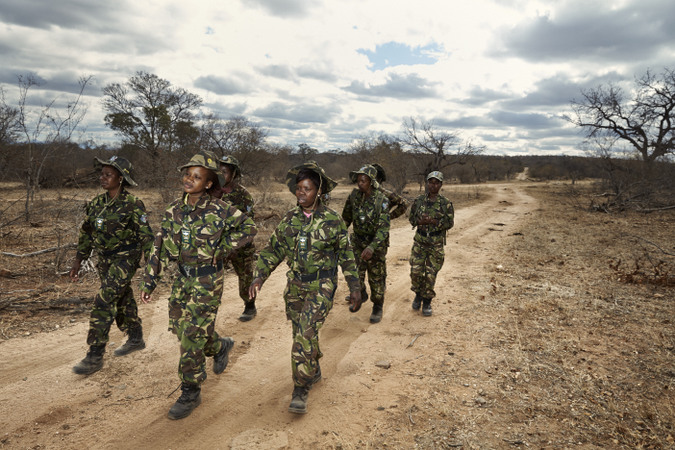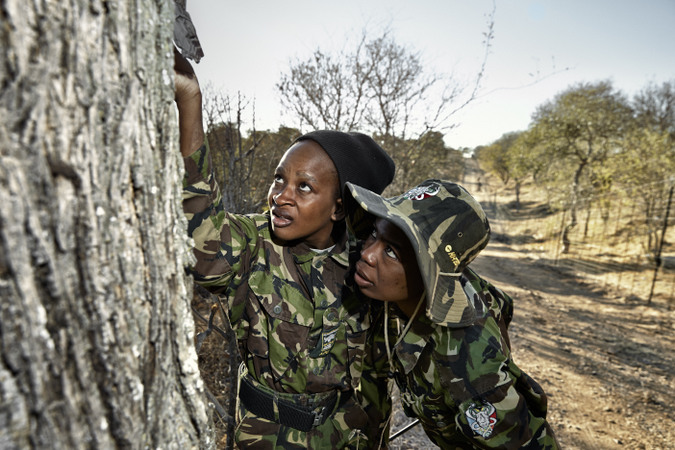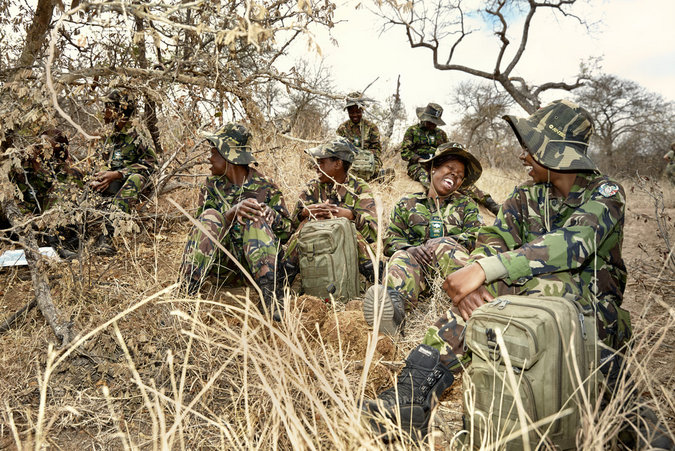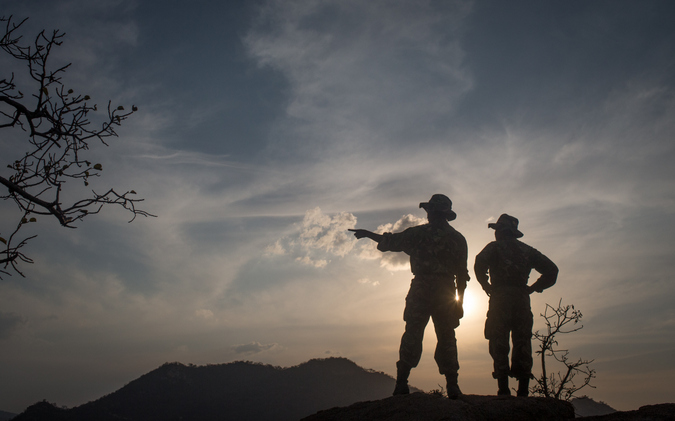The Black Mambas – Balule’s very own girl power
Posted on 24 April, 2019 by Sausage Tree Safari Camp in Conservation, Destinations, Kruger, People, Poaching, South Africa, Wildlife
 © Julia Gunther
© Julia Gunther
The Balule Private Nature Reserve is home to one of the most high-profile anti-poaching units in Africa – the all-women Black Mambas. Since their inception in 2013, these lovely ladies have become icons of the battle to save South Africa’s rhinos and amazing role models for girls everywhere who want to make a difference in the conservation of our incredible wildlife.
Recruited through joint efforts by the Balule management and local tribal authorities – a process that created community buy-in to the Black Mamba programme at the highest level – the initial team of six women has now grown to a fully equipped and highly trained team of 36 who are deployed each day with a single purpose: to gather information on poacher activities and the poaching landscape within the Balule and beyond.
 Black Mambas
Black Mambas
© Julia Gunther
The Black Mambas are quite literally the “bobbies on the beat” of Balule’s dusty pavements, using their eyes and ears to develop institutional knowledge of the area in which they work, noting who drives what vehicle, who goes to which school, who works where, etc. Covering large areas, the Mambas look smart, speak well and command respect. It’s a proud and dignified role for the ladies who make up the group and goes to the very DNA of the Black Mamba “brand”.
It’s a brand that does not forget that these women are young mothers and wives, with families to care for who live in the same communities as the poachers themselves, so efforts are maximised to protect them at every level, both physically and emotionally.
The Black Mambas are not armed with guns, only pepper-spray. They’re not deployed in ambushes or other tactical situations that could result in casualties. They are rather the public face of anti-poaching and perform a critical role in outreach programmes throughout the Greater Kruger region, and even internationally – a group of Black Mambas has recently returned home from a visit to Australia where they were hosted by the Irwin family.
 Black Mambas taking a break
Black Mambas taking a break
© Julia Gunther
The Mambas are also tracked in real time when they are out on their patrols and operate their own command and control centre, allowing them to respond rapidly to any crisis situation and maintain high levels of strategic planning and assessment of the patrol regime.
So, what’s it like being a Black Mamba?
Well, a typical day would consist of boundary patrols to look for evidence of poacher activity; routine road-blocks to search people and vehicles entering and leaving the reserve; searching for and destroying snares; visiting the homes of people living on the old farms and building sites to inspect premises and question locals; carry out listening posts at night in areas where poachers are known to often traverse and patrolling boundaries in vehicles at night. They also visit schools every day and take part in community functions in their official capacity, staging parades and giving speeches.
They really are the pride of the Balule!
 Black Mambas on patrol
Black Mambas on patrol
© James Suter




